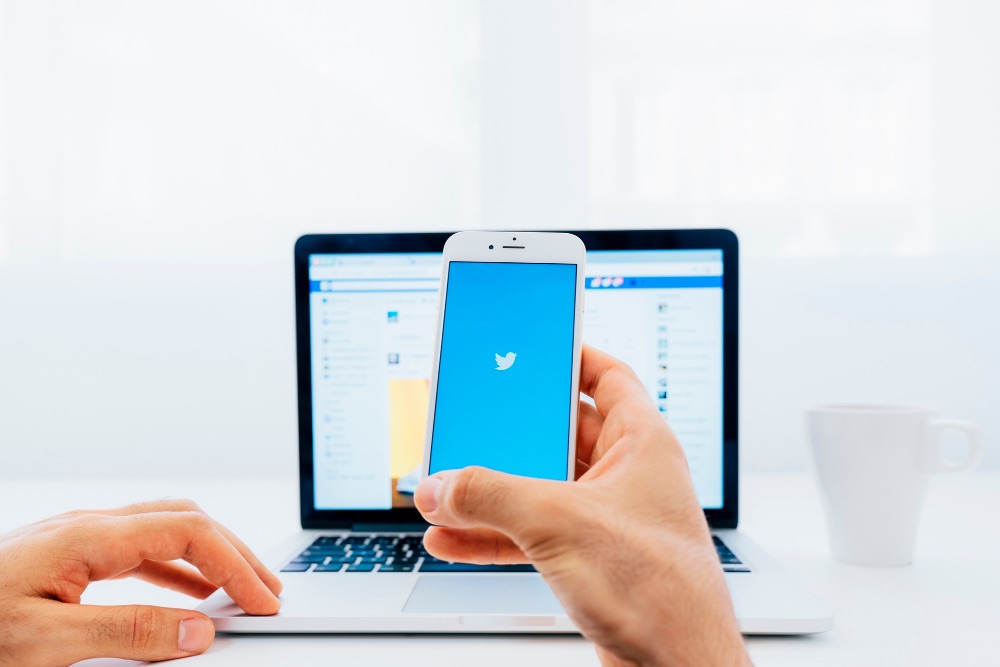
Tweeting for Laughs: How the Internet Is Shaping Comedy
Social media is changing comedy, giving both fledgling and established comics instantaneous, wide exposure while pressuring them to take part in a distracting and potentially career-damaging set of online behaviors.
Still, even while the new sharing technology can add extra challenges and pressure for performers, overall the positives outweigh the negatives for today’s comedians.
The Future of Comedy
Twitter’s character limit puts a premium on brevity, and can be the perfect place for comedians to hone one-liners, polish short jokes, and connect with fans. Some people, like Canadian mom Kelly Oxford, even develop a career for themselves exclusively through the microblogging site, crafting 140 character bits sharp enough to gain a massive audience. Oxford went from housewife to Hollywood by amassing over 370,000 followers, including celebrity fans like Roger Ebert.
More established comedy figures like Aziz Ansari and Rob Delaney furthered their careers by taking advantage of the social media platform, but other comedians haven’t taken to the medium quite as well.
Louis C.K., who is brilliant at using the Internet and social media to help fans access his material, claims to loathe the site. Even young, ascending comedians aren’t always particularly into using the platform. Chicago’s Chris Condren, 24, who recently performed at the Just for Laughs festival, explained “I’m bad at Twitter. Most of my tweets are about how I don’t get Twitter.”
Meanwhile, L.A.-based comedian Leo Margul found Twitter useful for immediately publishing ideas, but noted “linking Twitter to Facebook makes me wary of what I say on it, so sometimes I over-think people’s possible reactions to my tweets.”
Though he vocalized his hesitation about sharing his Twitter account with friends, Margul also remarked on its utility, explaining, “My comedy is not usually one-liners, but sometimes I will create longer bits based on tweets, so it definitely helps in that respect.”
No Room for Error
Comedians don’t start off with a refined set, and they rely on smaller rooms and regular gigs to try new material and experiment with pushing their boundaries. Though social media and the Internet have helped comedians gain exposure and a new platform to engage with fans, it also opens up the possibility that incomplete material can find a way to circulate to larger crowds.
Smartphone-armed audience members can record and share these early “draft” performances, entering them sometimes prematurely into the comedian’s permanent public record. This can result in comedians feeling slightly embarrassment about old, lesser material making the rounds, or it can result in a full-fledged PR crisis.
Pre-Internet, incidents like Michael Richards’ racist outburst or Tracy Morgan’s homophobic comments might not have gained widespread attention, and the comedians may have been able to overcome their gauche mistakes without a maelstrom of media criticism.
In some ways, this is good — it discourages performers from going on racist or homophobic rants — but it is also difficult for comedians who toe the line and discuss controversial topics, because it may take them time to find the right wording to explore divisive issues without crossing into tasteless territory.
After all, some of the best comedians tackle race, sex, religion and every other hot button issue in ways that may offend some, but their purpose is to illuminate an underlying societal truth, not to say slurs for the sake of saying slurs. And as they work on potentially offensive bits, the spectre of media character assassination may end up spooking comedians away from trying out daring material.
Using Technology to Change the Comedy Business
As mentioned earlier, Louis C.K., one of comedy’s most beloved and respected figures, doesn’t use Twitter to deliver zingers or gain fans. Instead, he is using Twitter, e-mail lists, and his homepage to revolutionize the way comedians tour.
Frustrated by high processing prices and looking for a way to deliver affordable tour tickets for his fans, C.K. decided to sell tickets for his show himself, eschewing any middlemen. Musical artists are doing the same thing, moving away from industry behemoths to take greater control over their touring schedules and pricing.
The result was tremendous, with C.K. raking in over $4.5 million in ticket sales. This is his second unconventional online-sales success, as he also sold an exclusive recording of a performance for $5 online earlier this year, which garnered him equally sky-high sales despite the prices being much lower than they would be through a traditional sales experience.
The Viral Premium
Viral videos are a bona-fide phenomenon, and several comedians have eked out careers after their performances on YouTube or Funny or Die videos took off. Andy Samberg made a name for himself with his SNL Digital Shorts, but before Justin Timberlake guest starred in goofy outfits, Samberg’s clips started out as low-budget comedy videos with the Lonely Island troupe.
And though Samberg went from mildly familiar to more out-and-out famous through his exposure on SNL, many people now watch clips from “Saturday Night Live” on their computers instead of sitting down for the whole show. Instead of favoring longer-form comedy performances or programs, the ascent of viral videos cultivates a cultural taste for shorter clips. This can influence the way comedians put together their performances, and may discourage performers who don’t necessarily fit the mold from trying more experimental stuff.
Despite the downsides, the Internet gives comedians such an enormous amount of exposure that overall, social media and technology help performers reach wider audiences at the same time they continue to transform the comedy industry.
